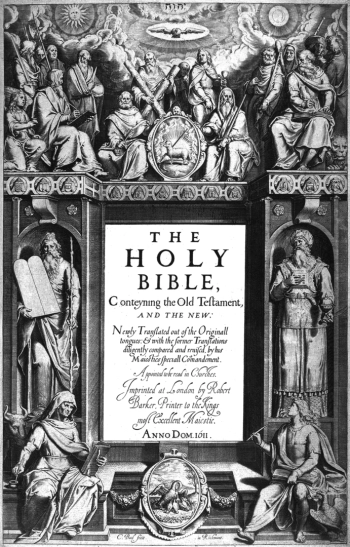1599 Geneva Bible (GNV)
The Geneva Bible: A Cornerstone of English Protestantism A Testament to Reform The 1599 Geneva Bible... Read More
The King James Version (KJV), also known as the Authorized Version, is an English translation of the Christian Bible that has had an enduring impact on English literature and culture. Commissioned by King James I of England in 1604 and published in 1611, it quickly became the standard English Bible for the Church of England and subsequently for many English-speaking Protestants.
The creation of the KJV was a monumental task. A team of 47 scholars, drawn from the universities of Oxford, Cambridge, and Westminster, worked diligently for several years to produce this new translation. They drew upon earlier English translations, such as the Bishops' Bible and the Geneva Bible, while also consulting the original Hebrew, Greek, and Latin texts.

One of the most striking features of the KJV is its literary beauty. The translators were masters of the English language, and their work is characterized by its poetic rhythm, majestic phrasing, and rich vocabulary. This literary elegance has contributed significantly to the KJV's enduring popularity. Many of the phrases and expressions from the KJV have become ingrained in the English language.
The KJV reflects the theological climate of its time, with a strong emphasis on the sovereignty of God, the authority of Scripture, and the importance of the church. This theological framework has shaped the beliefs and practices of countless Christians.
While modern translations have gained popularity, the KJV continues to hold a special place in the hearts of many Christians. Its rich history, literary beauty, and theological depth make it a beloved classic. Many churches still use the KJV for liturgical purposes, and countless individuals continue to read and study it for personal devotion.
It is important to acknowledge that the KJV, like any translation, has its limitations. The underlying textual base has been refined through subsequent scholarship, and some of the language may be challenging for modern readers. Additionally, some critics argue that the KJV's emphasis on formal equivalence can sometimes obscure the meaning of the original text.
The King James Version is a remarkable achievement in the history of Bible translation. Its literary beauty, theological depth, and enduring popularity have secured its place as a timeless classic. While modern translations offer their own strengths, the KJV continues to inspire and enrich the lives of countless people.